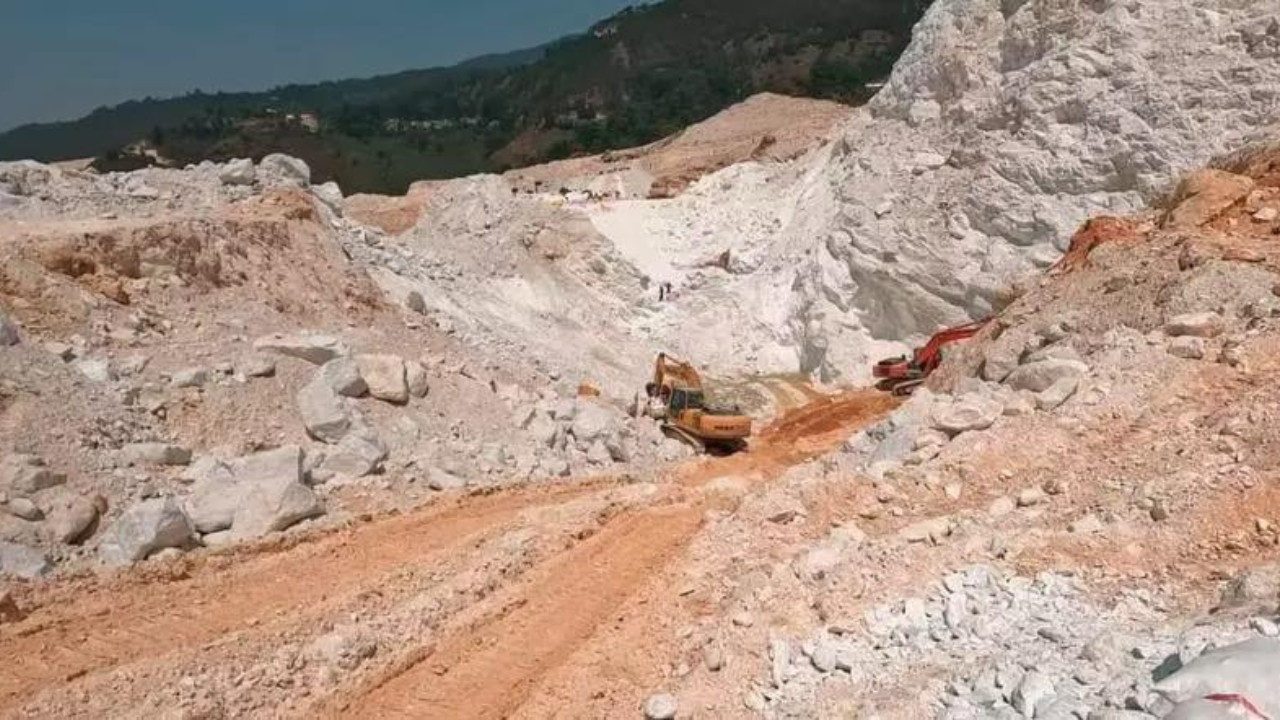Jammu & Kashmir is set to witness its first-ever auction of seven limestone blocks on Monday, a significant step under new mining reforms. These deposits, spanning over 314 hectares, are crucial for cement and construction industries. The transparent, technology-driven process aims to boost employment, industrial growth, and local revenue, contributing to J&K’s economic development and the Viksit Bharat 2047 vision.
Limestone Gold Rush? Jammu & Kashmir Gears Up for Landmark Mining Auction
For the first time ever, Jammu & Kashmir is poised to auction off seven lucrative limestone blocks, potentially ushering in a new era of industrial development and economic prosperity for the region. This landmark decision, spurred by the central government’s invocation of the Mines and Minerals (Development and Regulation) Act (MMDR), signifies a major shift in how resources are being managed and utilized in the Union Territory. Forget the bureaucratic hurdles of the past; this move is all about speed and efficiency.
The MMDR Act, a key piece of legislation governing the mining sector in India, has been strategically deployed to accelerate the auction process. This means streamlined approvals, faster clearances, and a significantly reduced timeline for getting these limestone mines up and running. What once might have taken years could now be accomplished in a fraction of the time, a testament to the government’s commitment to unlocking the region’s mineral wealth.

So, why all the excitement about limestone? This seemingly ordinary sedimentary rock is a critical ingredient in a vast range of industries. From cement production to steel manufacturing, from construction to chemical processing, limestone is an indispensable raw material. Securing access to these deposits could be a game-changer for companies looking to expand their operations or establish a presence in this strategically important region.
But the implications extend far beyond mere industrial growth. The auction of these seven limestone blocks promises to generate substantial revenue for the Jammu & Kashmir government, funds that can be reinvested in infrastructure development, social programs, and other initiatives aimed at improving the lives of the local population. Furthermore, the creation of new mining operations will inevitably lead to a surge in employment opportunities, providing much-needed jobs for skilled and unskilled workers alike.
Think about the ripple effect: more jobs mean more income, which in turn fuels local businesses and strengthens the overall economy. It’s a virtuous cycle that could transform the economic landscape of Jammu & Kashmir.
The central government’s proactive role in facilitating this auction highlights its commitment to supporting the Union Territory’s economic development. By leveraging the MMDR Act, the government is not only expediting the process but also ensuring transparency and accountability. The aim is to create a level playing field for all potential bidders, fostering healthy competition and maximizing the value of these valuable resources.
While details regarding the specific locations and estimated reserves of the seven limestone blocks are still emerging, the anticipation within the mining industry is palpable. Major players are undoubtedly preparing their bids, eager to secure a foothold in this promising new market. The auction itself is expected to be a fiercely contested affair, with companies vying for the opportunity to tap into the region’s vast limestone reserves.
This move aligns perfectly with the broader national agenda of promoting self-reliance and reducing dependence on imports. By harnessing its own mineral resources, India can strengthen its industrial base, create jobs, and boost its economic competitiveness on the global stage. In fact, this push towards domestic resource utilization is quite reminiscent of efforts to bolster local manufacturing through initiatives like the Production Linked Incentive (PLI) schemes. You can read more about those schemes [here](link-to-related-content).
Beyond the economic benefits, this initiative also underscores the importance of sustainable mining practices. It is crucial that these limestone extraction operations are conducted in an environmentally responsible manner, minimizing their impact on the delicate ecosystem of Jammu & Kashmir. This means implementing stringent environmental safeguards, investing in reclamation efforts, and engaging with local communities to address any concerns or grievances.
The upcoming auction of these seven limestone blocks marks a pivotal moment for Jammu & Kashmir. It represents a significant step towards unlocking the region’s economic potential, creating jobs, and improving the lives of its citizens. While challenges undoubtedly lie ahead, the potential rewards are immense. As the auction process unfolds, it will be fascinating to witness the transformation of this mineral-rich region and its contribution to India’s overall economic growth.
Ultimately, the successful implementation of this initiative hinges on a collaborative effort between the government, the mining industry, and local communities. By working together, these stakeholders can ensure that the development of Jammu & Kashmir’s limestone resources benefits all segments of society and contributes to a more prosperous and sustainable future.







